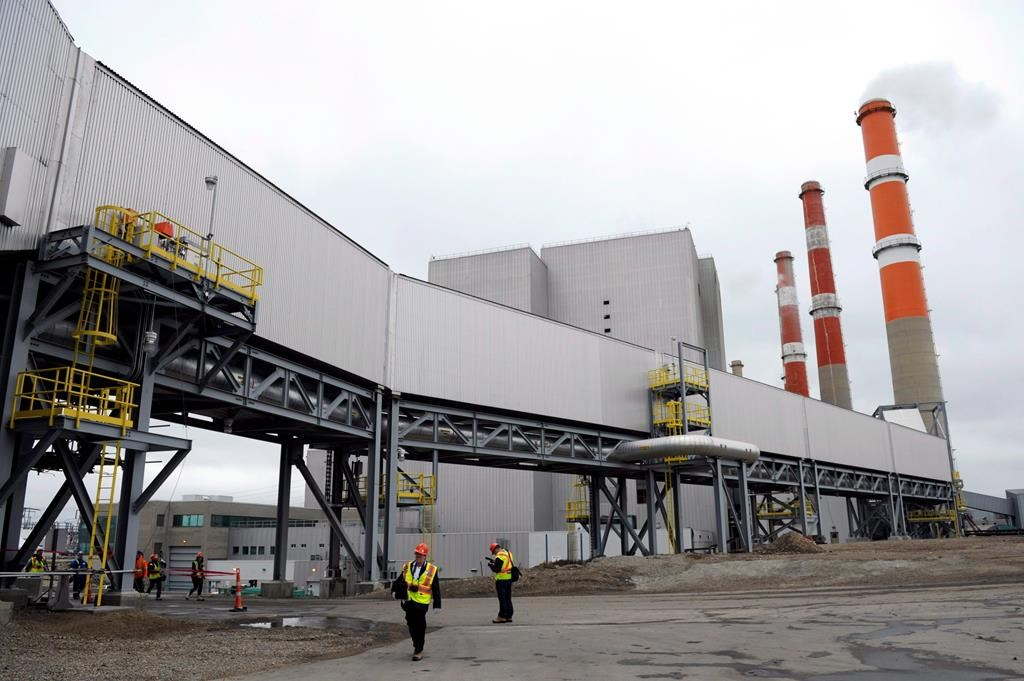Support strong Canadian climate journalism for 2025
Canada's largest business group has endorsed a carbon tax as the most efficient way for the country to cut greenhouse gas emissions.
In a report released Thursday, the Canadian Chamber of Commerce says there is general consensus in Canada that something needs to be done about climate change, and the debate should not be about if, but how that happens.
Aaron Henry, the chamber's director of natural resources and environmental policy, said the businesses that make up its membership agree a carbon price is the most efficient way to do it.
"Our members are very much in favour of it," he said. "They're happy to do this. We applaud the Canadian government's direction on this."
Henry said what chamber members don't want is more years of political uncertainty that leave businesses unsure what the policies will be next year for getting to those lower-carbon realities.
Nor, he said, do they want layers of environmental regulation on top of carbon pricing that add inefficient requirements to cut emissions that are less flexible than carbon prices.
The federal government's climate change action plan includes a national price on carbon, but it also develops clean fuel standards, new energy-efficiency building codes, and a phase out on the use of coal to generate electricity.
The regulations for the phase out of coal were finalized this week and have such strict emissions standards for coal plants only one of Canada's 15 remaining coal-fired generating stations can operate beyond a 2029 deadline.
The Boundary Dam coal plant in Saskatchewan uses carbon capture and storage technology that traps carbon emissions in the ground rather than releasing them into the atmosphere.
The remaining 14 power plants in Alberta, Saskatchewan, New Brunswick and Nova Scotia will have to convert to other fuel sources, introduce carbon capture technology or close before the end of 2029.
The chamber of commerce report said environmental regulations that force specific actions can force companies to spend to meet regulations, instead of allowing businesses to figure out the cheapest and easiest ways to cut emissions — and therefore lower their carbon tax costs.
In other words, the chamber says the flexibility offered up by the carbon price makes it the most efficient way to cut emissions.
The chamber's report comes at the end of the fall sitting of Parliament where the government finalized its plan to force a national price on carbon next year. Conservative leader Andrew Scheer has said eliminating the carbon tax will be his first order of business if elected next year.
Henry said the carbon tax will likely be a significant ballot box question when Canadians go to the polls next October.
The chamber report also spoke of a need to invest strongly in clean technology and ensure Canada can develop its resources responsibly, then sell them globally to displace dirtier fuels or those developed without the same levels of sustainability.
Canada must lobby for international climate change agreements to allow for offset credits when a country like Canada provides funding or resources to help developing nations reduce their emissions or replace dirtier fuels with cleaner ones, the report says.
Canada made such an investment during the United Nations climate change talks in Poland on Thursday, pledging $275 million to help developing nations replace coal with renewables, particularly in Asia, which is responsible for about three-quarters of coal consumed in the world annually.
Coal is considered the dirtiest fossil fuel on the market, with twice the average emissions when burned as natural gas. It is also responsible for air pollution that kills millions of people around the world each year. Globally, coal produces about 40 per cent of the world's emissions.
Stewart Elgie, director of the Environment Institute at the University of Ottawa, said the Canadian chamber's endorsement of the carbon tax as the most efficient emissions-cutting tool is a big deal.
He said the report's push for turning Canada's investments in clean technology at home and abroad as a major opportunity for the Canadian economy to market itself in a low-carbon future is bang on.





Comments
Carbon taxes are indeed the most efficient way of addressing climate change, but if we are going to make the CO2e reductions we need to make to avoid a catastrophe and meet Paris Agreement objectives, they would need to be in the neighbourhood of $300 per tonne within the next 12 years. Since this is unlikely to happen, many other complementary measures, including regulations, the elimination of subsidies for fossil fuels, and the use of subsidies for clean renewables, electric vehicles, biofuels from waste, and building energy efficiency retrofits, among other possibilities, are all needed.
Please elaborate on how the $300 per tonne would affect the average householder's bottom line. The figure as you well know is staggering. We already have an inventory of homeless seniors. No doubt more are on the horizon.
Well, hooray Harry - finally the business community comes down on the side of prevention and efficiency. Took them long enough. Nice job of undercutting the Ontario PC "climate change" plan. Can't wait to see Ford bluster his way out of this one.
David's bleating about the effect on the average household is insulting. Most Canadian average households probably spend more on entertaiment/cell phone bills, and other media in a year than they do to pay for their energy consumption.